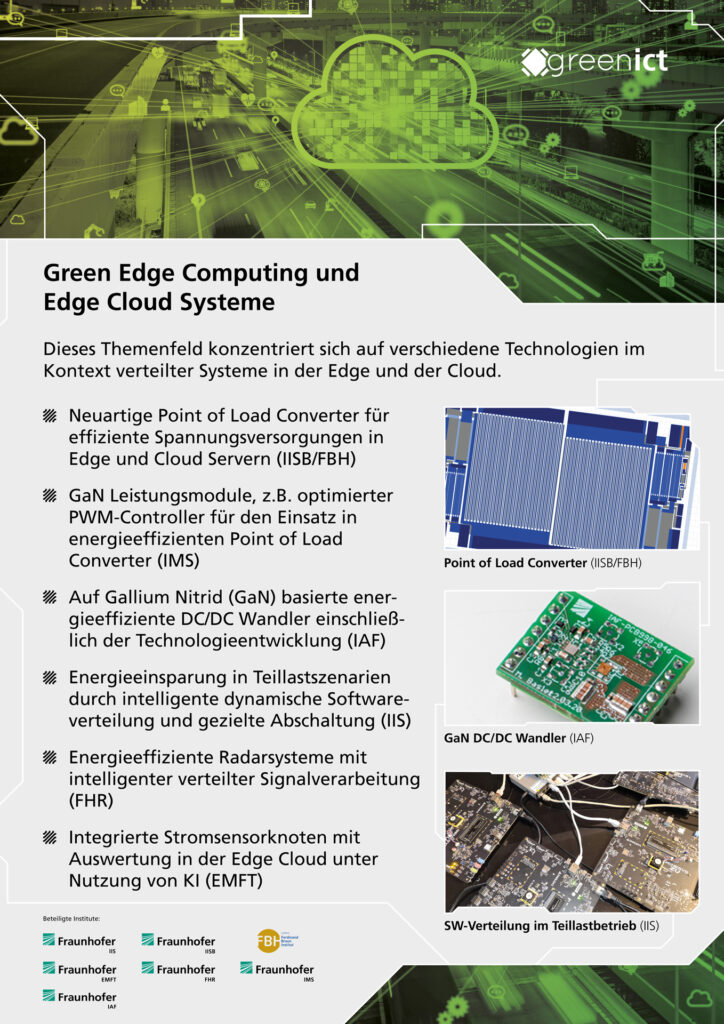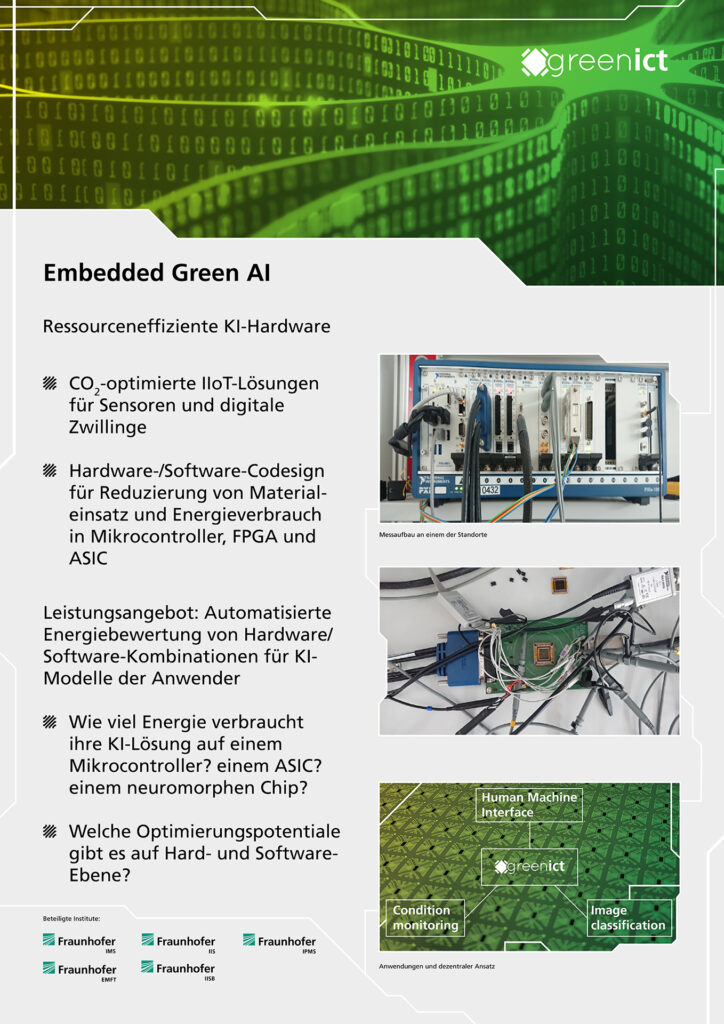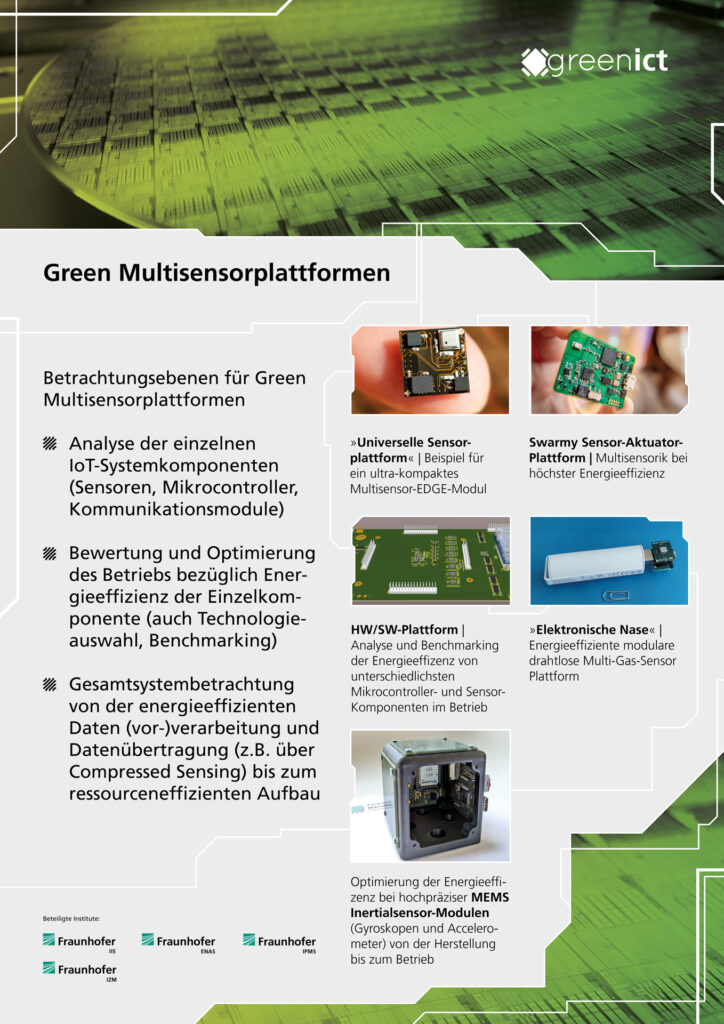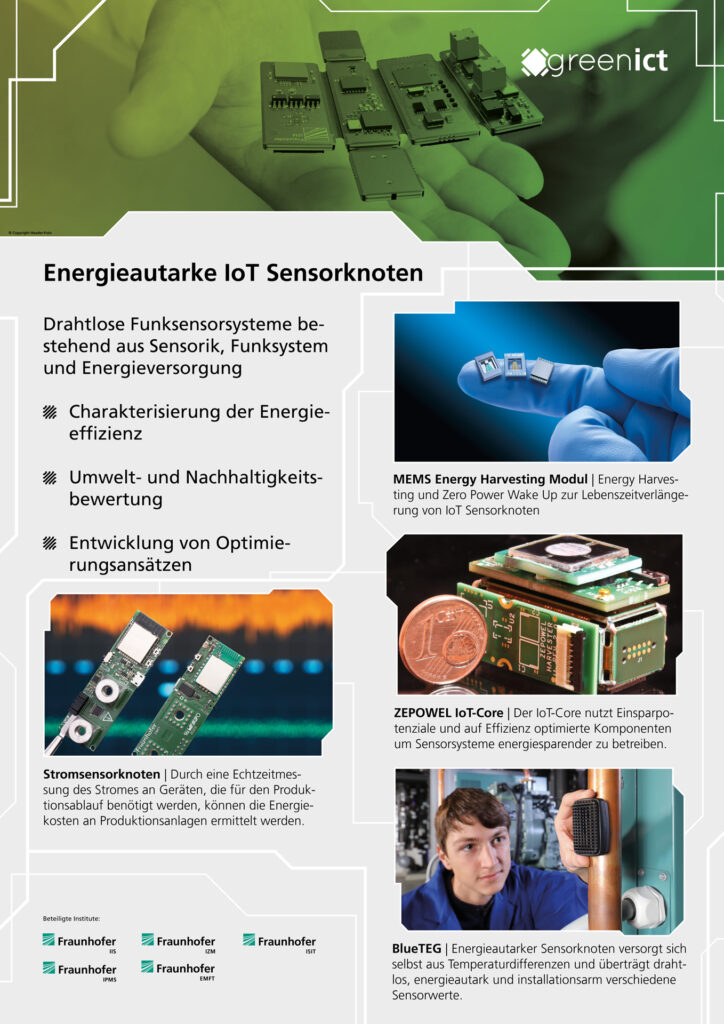
The Green-ICT Hub for Sensor Edge Cloud (SEC) Systems is dedicated to the systematic environmental assessment of sensors, sensor systems, and their data processing and networking in edge cloud systems.
Services:
- Advice on ecologically sustainable system architecture, load profile and selection of components and materials
- Characterization and analysis of energy efficiency including advice on savings
- Alternative energy supply (e.g. energy harvesting)
- Quantification and evaluation of the carbon footprint
First use cases start in Hub 1: learn more
Main objectives
- To set up and equip a Green ICT SEC lab(oratory) as a competence center for partners from industry, associations and politics
- To develop methods and models for the systematic environmental assessment of SEC systems and generation of data for a common database
SEC-Systemen und Generierung von Daten für eine gemeinsame Datenbasis - To create a measurement and simulation environment along with a reference and reference systems from the existing preliminary work of the institutes
- Use of AI and edge computing methods to implement ecologically sustainable hardware/software components and SEC systems with low or optimized resource requirements
- Preparation and dissemination of results and the offer from the Green SEC Hub via workshops, trainings, and events
Video presentation of the hubs (only available in German)
Info poster (only available in German)
Validation projects: Get the sustainability booster for your product!
In order to evaluate the developed S-E-C reference system, exemplary specific validation projects are conducted, which quantitatively prove the environmental aspects of an S-E-C system through concrete application examples from industry. The validation projects will be selected during a review meeting.
Goals:
- Validating a measurement platform and assessment methods for ecologically sustainable use and LCA based on specific application cases
- Creating a case study on the condition monitoring application field from the institutes' preliminary work
- Realize further validation projects in cooperation with industry partners (User Group). -> More info about the validation project here: Service Offerings of the Sensor-Edge-Cloud Hub
Erste Validierungsprojekte wurden bereits gestartet. Bisherige Ergebnisse aus dem Hub werden an realen Use Cases validiert. Es konnten erfolgreich zwei Industriepartner für die Use Cases »Metering« und »Condition Monitoring« gewonnen werden. Learn more
Reference systems, measurement platform, and life cycle assessment for the SEC hub
The components evaluated in the four technology fields from hardware/software modules or simulation models of subcomponents will be integrated into a modular S-E-C reference system in this work package. In the future, the reference system will allow comparisons with other (commercial) solutions and the influence of the individual components on the entire S-E-C chain to be determined. A measurement environment for recording energy consumption is being developed and integrated into the reference system. Newly created evaluation methods enable the interpretation and a standardized comparison of different system solutions. To analyze the environmental impact of each S-E-C solution on the reference system, ecological data - either measured or calculated using learned methods - are recorded in an S-E-C database, classified, and prepared for benchmarking as an offer to the industry.
Technological Fields





